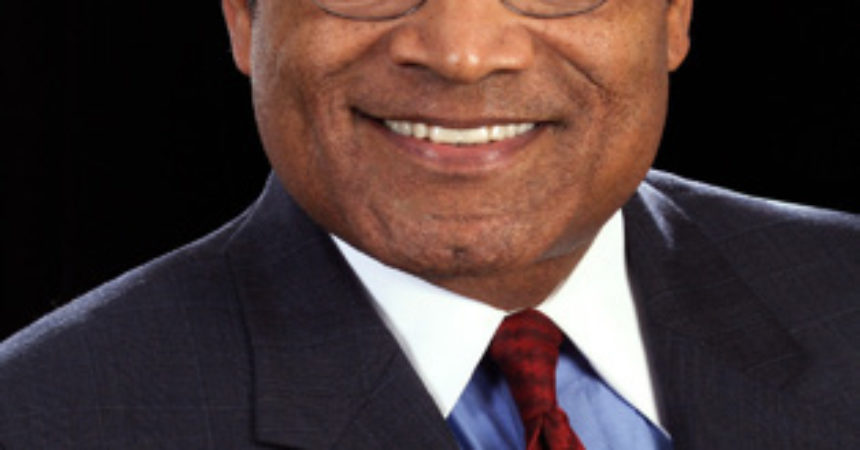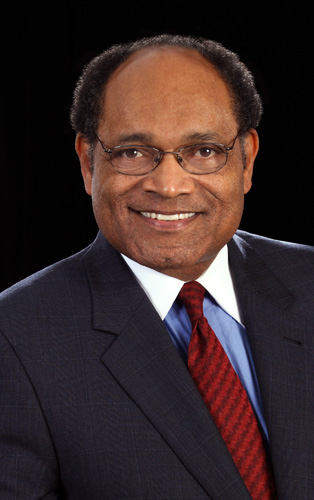
How Florida’s DeSantis can bring home the bacon for Trump in 2020

By Clarence McKee
Special to the Outlook
But for President Donald Trump’s endorsement — and key support from Black school-choice voters — Ron DeSantis probably would not be Florida’s Governor-Elect.
The question is, can he repay the president — and those Black supporters — by making Florida a model for GOP Black and Hispanic outreach and inclusion and bring home the bacon for the president in 2020?
The key will be how he develops Black and Hispanic support to increase the margins of a GOP victory in 2020 — no more recounts!
Florida — through DeSantis — could become a national model for Republican minority outreach.
DeSantis garnered 14 percent of the Black vote and 18 percent of the Black female vote. William Mattox, director of the Marshall Center for Educational Options at the James Madison Institute in Tallahassee, put it in perspective in his November 21 Wall Street Journal article “‘School Choice Moms’ Tipped Governor’s Florida Race.”
He wrote: “Believe it or not, Republican Ron DeSantis owes his victory in the Florida gubernatorial election to about 100,000 African-American women who unexpectedly chose him over the Black Democrat candidate, Andrew Gillum…in an election decided by fewer than 40,000 votes, these 100,000 Black women proved decisive.”
Mattox stated that two words explain DeSantis’ surprising support from African-American women: “school choice.” He also pointed out that that issue helped him “solidify his support among Latinos at an impressive 44 percent.”
These results are not the result of any proactive outreach to Blacks by the DeSantis campaign. It is due to some very effective campaigning for DeSantis’ school choice position by outside groups: the Florida Federation for Children and Florida based BlakPac that informed parents of DeSantis’ strong support for school choice and voucher programs.
Since the Florida Department of State Division of Elections reports that there are only 61,016 registered Black Republicans in the state, DeSantis obviously received votes from the 1.4 million Black Democrats and 290,000 Black Independents.
How will he thank and reward those Black voters who voted for him, build upon their crucial support and show empathy for their issues going into 2020?
There is much work to be done.
Blacks, unlike Hispanics, have put all of their political eggs into one big, and losing, Democratic basket constituting over 28 percent of the 1.4 million Democrats referred to above.
That’s why most GOP campaigns ignore Blacks and focus on Hispanics as was the case in Florida.
So, what can DeSantis do?
He can reverse the Republican trend of treating Blacks and Black candidates with benign neglect and work to get his message out.
Black voters in Florida are waiting to see how and if DeSantis shows his appreciation to the Black supporters whose votes were so important in this very close election while Democrats are hoping and betting that he will do nothing.
DeSantis can change the pattern of neglect by reaching out to the nearly 300,000 Black Independents and philosophically conservative Black Democrats; listening to Black Republicans and business owners throughout the state; and through staff and other appointments.
He could start with meeting with the only two Black Republican members of the legislature — Mike Hill of Pensacola and Byron Donalds of Naples — and Michael Barnett, Chairman of the Palm Beach County GOP, the only Black GOP county chairman in the state and Vice Chairman of the Republican Party of Florida (RPOF).
Notwithstanding the above, Blacks have some responsibility in this process as well. They are fourth behind white, Hispanic, and Asian GOP voter groups. In fact, Asian Republicans, at 64,940 outnumber Blacks by nearly 4,000 voters.
Unlike other groups, Blacks have no balance in their politics!
Regarding Hispanics, Florida is already heads above other states on Hispanic participation and inclusion.
Janet Nuñez, a Cuban-American female from Miami, is DeSantis’ Lieutenant Governor. She is highly respected in GOP circles having served as Speaker Pro Tempore — the number two leadership post — in the Florida House of Representatives.
José Oliva, the incoming Speaker of the Florida House of Representatives is, like Nuñez, a Cuban-American.
Marco Rubio, another Cuban-American, serves in the U.S. Senate.
Combined with these top leadership roles is the fact that Hispanics constitute 535,800 or 11.4 percent of Florida Republican voters. As Rafael Bernal wrote in The Hill ,“GOP makes inroads with Hispanics in Florida,” Republicans picked up a “larger share of Hispanic voters in 2018 than President Trump did in 2016…”
DeSantis must build upon this strong Hispanic foundation and expand the GOP Hispanic base by increasing outreach to Florida’s growing Puerto Rican population.
If he is inclusive in his appointments and, as did Jeb Bush and Charlie Crist, direct his RPOF Chair to implement a meaningful program of outreach to Blacks, Hispanics, and Asians, he can certainly improve GOP election numbers.
With such an effort over the next two years, combined with a focus on issues such as school choice, jobs, neighborhood safety, and correctional institution reform, DeSantis can increase Black and Hispanic support and bring the political bacon home for Trump in 2020.
By naming Shane Strum, former Chief of Staff to former Governor Charlie Crist as his Chief of Staff, he has taken a giant step toward accomplishing that goal!
Clarence V. McKee is president of McKee Communications, Inc., a government, political, and media relations consulting firm in Florida. He held several positions in the Reagan administration as well as in the Reagan presidential campaigns. He is a former co-owner of WTVT-TV in Tampa and former president of the Florida Association of Broadcasters.







